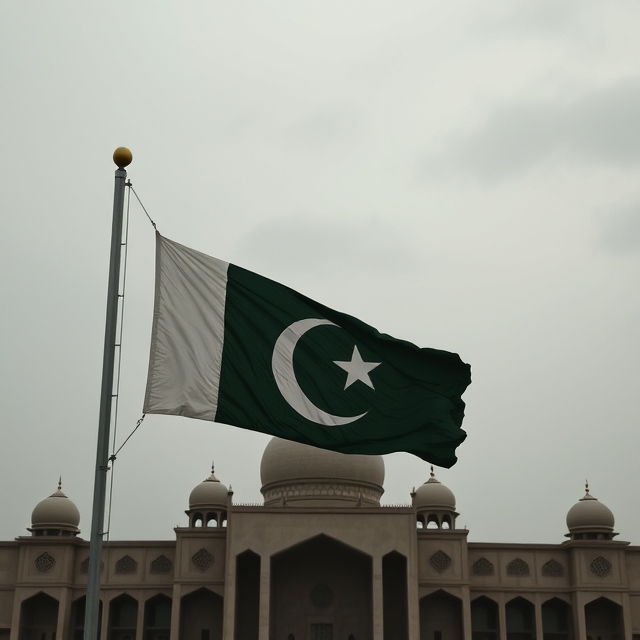
- Pakistan’s Decline: Once South Asia’s most promising state, Pakistan now faces severe challenges, including political instability, rampant terrorism, and economic crises, exacerbating its status as a failed state.
- Military Domination: Pakistan’s democratic façade is overshadowed by military control, with the army influencing governance, judiciary, and the economy, creating widespread disillusionment among citizens.
- Economic and Strategic Failures: Poor planning, corruption, and reliance on state-sponsored terrorism have backfired, leading to underutilized projects like CPEC and surging internal instability. The country’s lack of vision threatens its future viability.
The world now views Pakistan as a failed state, even though it was previously seen to be the most abundant nation in South Asia when it gained its freedom. The government faces political, economic, and security issues in addition to skyrocketing prices. The new normal is political violence, terrorist attacks, and politics motivated by personal grudges. Regular traffic in the capital is now far less frequent than political protests in the streets of Islamabad.
This was evident in the recent sectarian clashes that occurred in the Khurram district, where a vehicle carrying Shia pilgrims was attacked, leading to the deaths of dozens of Shia community members. This incident sparked sectarian violence, resulting in over 100 fatalities so far. While this crisis unfolded, Islamabad remained on edge, witnessing intense political demonstrations by the Pakistan Tehreek-e-Insaf (PTI) party, led by Imran Khan. The former prime minister, who was removed from power and imprisoned, became the focal point of protests. PTI supporters created chaos in the capital, demanding his release. The protests turned violent, disrupting major city services and resulting in dozens of casualties.
In response, the Pakistani army was forced to impose a “shoot-at-sight” order to control the unrest. Meanwhile, Pakistan continues to grapple with escalating terrorist activity. A recent attack in Khyber Pakhtunkhwa added to the mounting violence, with reports of 54 terrorist incidents in August alone, claiming more than 250 lives. Terrorist attacks have now become a central issue across Pakistan, further deepening the country’s instability.

The question arises: how has Pakistan, once a promising state, turned into a complete disaster? This stems from a fundamental flaw in the very idea of Pakistan—a state created on the sole basis of religious identity and an obsession with India. Even after over 75 years, Pakistan has struggled with its national identity and purpose.
One of the key issues lies in how Pakistan functions as a state. It claims to be a democracy, but in a true democratic system, the elected government is the supreme authority. In Pakistan, however, the opposite is true. The military wields unchecked power and effectively governs the country. Pakistan does not operate from Islamabad but from Rawalpindi, the seat of its military headquarters. The military intervenes in the judiciary, legislature, and executive branches, dominates the economy, and acts as a feudal overlord, controlling vast swathes of land. It even runs industries like cement and automobile manufacturing, generating significant revenues. Any government that comes to power in Islamabad can only do so with the military’s consent. This façade of democracy leaves the people of Pakistan disillusioned; while they are allowed to vote, their choices hold little significance compared to the directives issued by the military.
The second major issue is Pakistan’s dire economic situation. The economy is in such a poor state that skilled and able young people are leaving the country in large numbers. Inflation is skyrocketing, unemployment is at historic highs, and the nation’s foreign reserves are plummeting. Pakistan failed to implement a coherent economic model or introduce pragmatic policies. Infrastructure development, which should be proportional to a country’s demand, has been haphazard and inefficient. Many projects are poorly planned and remain underutilized.

A prime example is the China-Pakistan Economic Corridor (CPEC), hailed as a game-changer for Pakistan. When signed, it was projected to create millions of jobs for Pakistani youth. Even former Prime Minister Imran Khan claimed the project would employ over 1 million Pakistanis. However, the reality is far from this vision. Most of the projects are being carried out by Chinese engineers, and corruption among Pakistani bureaucrats has hindered progress. Even completed projects are underutilized because the economy cannot leverage them effectively. This reflects a lack of pragmatism and foresight in Pakistan’s approach to economic development.
Moreover, Pakistan’s long-standing use of state-sponsored terrorism has backfired. For decades, it has supported terrorist activities against neighbouring countries, particularly India. However, this strategy is now taking a toll on Pakistan itself, as terrorist activities have surged within its borders. In 2024 alone, Pakistan has witnessed a historic number of terrorist attacks, further destabilizing the nation.
These issues raise fundamental questions about Pakistan’s vision and existence. It is a country that lacks a coherent identity, a functional economic model, and a vision for the future. It has effectively become a failed state. The onus now lies on the people of Pakistan to decide their path forward—whether to continue under the current establishment’s grip or to demand introspection and meaningful change. The future of Pakistan depends on whether its people can envision and implement a new direction for the country.
References:
- https://idsa.in/idsastrategiccomments/IsPakistanaFailingState_AGupta_160609
Aayush Pal is a freelance writer on contemporary geopolitical developments. The views expressed in his work are entirely his own.
